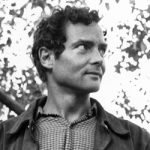 1
1
In the household of God, I have stumbled in recitation,
and in my mind I have wandered.
I have interrupted worship with discussion.
Once I extinguished the Gospel candle after all the others.
But never held the cup to my mouth lagging in gratitude.
2.
The Lord forgives many things,
so I have heard..
3.
The deer came into the field.
I saw her peaceful face and heard the shuffle of her breath.
She was sweetened by merriment and not afraid,
but bold to say
whose field she was crossing: spoke the tap of her foot:
It is God’s and mine.”
But only that she was born into the poem that God made, and
called the world….
6.
It’s close to hopeless,
for what I want to say the red-bird
has said already, and better, in a thousand trees.
The white bear, lifting one enormous paw, has said it better.
You cannot cross one hummock or furrow but it is
His holy ground.
7.
I had such a longing for virtue, for company.
I wanted Christ to be as close as the cross I wear.
I wanted to read and serve, to touch the altar linen.
Instead I went back to the woods where not a single tree
turns its face away.
Instead I prayed, oh Lord, let me be something
useful and unpretentious.
Even the chimney swift sings.
Even the cobblestones have a task to do, and do it well.
Lord, let me be a flower, even a tare; or a sparrow.
Or the smallest bright stone in a ring worn by someone
brave and kind, whose name I will never know.
Lord, when I sleep I feel you near.
When I wake, and you are already wiping the stars away,
I rise quickly, hoping to be like your wild child
the rose, the honey-maker the honey-vine:
a bird shouting its joy as it floats
through the gift you have given us: another day.







